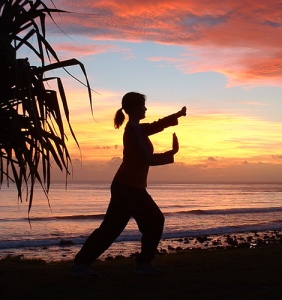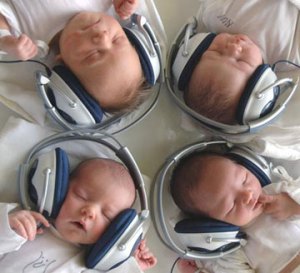from the Healthy Living area
You know the feeling: the more you do, the more it seems you have to do. As challenges mount in your work, relationships, finances and health—sometimes in several areas of your life at once—they can easily turn from trying to overwhelming.
The source of your stress may be temporary, such as producing a big holiday party, so the pressure ends in a short time. More serious stressors are long-lasting or out of your control, such as what the stock market is doing or a major medical problem.
Yet, often, we take responsibility for solving every detail, every problem, every adversity, whether it’s realistic or even sensible to do so.
“Women are always chronically multitasking and under stress. This year (with the economic crisis), in particular, it’s more difficult,” says Nancy Molitor, PhD, an assistant professor of clinical psychiatry and behavioral sciences at Northwestern University, Feinberg School of Medicine, Chicago.
Preventing stress in real life may be virtually impossible, but managing it well is extremely important for both your physical and emotional health.
When stress hits
Stress floods your body with hormones, weakens your immune system, affects brain function and worsens many chronic medical conditions.
While short-term stress might cause worry or a sleepless night, stress that lasts longer can produce or contribute to high blood pressure, digestive difficulties, fatigue, heart problems, neck and back pain, obesity, breathing disorders, headaches, insomnia, anger, depression, lowered sexual desire, and more. Fortunately, there are many good ways to short-circuit the effects of stress (see suggestions below).
People differ in what triggers their stress as well as in which methods successfully manage it. What works to lower your stress might not work for your best friend. The wisest course is to find several effective de-stressing techniques. “You have to have a whole bunch of things in your toolkit,” says Dr. Molitor, who is also a psychologist in private practice in Wilmette, Illinois, and a Public Education Coordinator for the American Psychological Association.
To manage stress, she says, you need to develop ways to pace yourself and take time out. Stress relievers are vital, she adds, “like paying yourself first, or putting on your oxygen mask (on an airplane) before taking care of your kids.”
Facing challenges
Ramona Russell has been on the Stress Express ever since going to college full-time while working three jobs. “I have a very Type A personality and I’m intense. I’m a recovering perfectionist,” she says.
When she was 29, Russell had a demanding job working for a start-up nonprofit organization in Sacramento. “I did everything, from training volunteers to public relations and marketing.” Then the unthinkable happened: her younger sister, Liz, just 26 years old, was diagnosed with advanced breast cancer. At the same time, the nonprofit Russell worked for began to sink. “It made what was going on with my sister so much worse,” she recalls.
Although she had not been much of an athlete in her teen years, Russell had taken up running after college and ran in a marathon the year before her sister’s diagnosis. After her employer folded, Russell put off looking for another job so she could help with her sister’s care. She credits regular running (about 25 miles per week when she’s not training for a marathon) with reducing the ongoing stress she was experiencing. “It helped keep me focused and enabled me to better support my sister,” she says.
Repetitive exercise, such as running, brings forth the stress-busting “relaxation response,” according to research conducted by Herbert Benson, MD, of the Benson-Henry Institute for Mind Body Medicine at Massachusetts General Hospital and Harvard Medical School. Benson and his colleagues found that the relaxation response changes the way your body and brain react to stress. Put simply, you slow your metabolism, heart rate and breathing; lower your blood pressure; and reduce muscle tension. Recent research shows that the relaxation response can change gene expression for long-term benefits.
That process worked for Russell as she coped with her sister’s illness and death, the loss of two other young family members and separation from her brother, who enlisted and went to war. “When I run, I feel things melt away,” she says. “It gives you energy you didn’t have.” Running also sparked an idea for a business that Russell, now 33, created in her sister’s memory. Called Uptown Liz (www.uptownliz.com), the shopping Web site refers customers to products that benefit charitable causes.
Stress-busters that work
Don’t worry—you can get good stress relief from exercise without running a marathon. “There’s tons of research on this,” says Dr. Molitor. “Physical exercise of a very moderate amount, two times a week or more, is the best thing you can do to cope with chronic stress.”
- Understand what you can control: Stress often comes from trying to control situations or people’s actions that are beyond our control. Avoidance also raises stress. Recognize the choices you do have, Dr. Molitor advises. You may not be able to control world financial markets, but you can read your statements, control how you invest and make choices about how to spend your available income.
- Say good things about yourself: This one is so simple, but many of us reinforce our stress by piling on with an internal negative voice. Research shows that affirming your personal values keeps production of cortisol, the stress hormone, low. The next time you catch yourself putting yourself down in your thoughts, say or write something good about yourself instead. And make the goals you set for yourself realistic.
- Encourage the relaxation response: Try activities that use repetitive motion or sounds while also pushing aside everyday thoughts that might pop up. This helps quiet your mind. Good stress-relieving repetitive activities: knitting, running, prayer, playing a musical instrument, meditating or chanting a word or phrase.
- Keep meals and sleep healthy: Eat more veggies, fruits and whole grains. Avoid sugar, caffeine and fatty foods as much as possible. Good fuel promotes emotional resilience and calm. And avoid eating when you’re not hungry—another sign of chronic stress that can just lead to more tense feelings. Stress might also cause sleep loss, which makes you feel more stressed. Support healthy sleep by winding down at night, avoiding caffeine or food before bed and leaving enough time for a good night’s rest.
- Find a passion: Stress can narrow your vision, so it helps to move outside the boundaries of your current situation. Start with a small step—a one-night class in an artistic interest you haven’t pursued before or two hours of volunteer effort for a community or charitable project—then see where that first step takes you. Many women find stress relief through a new passion for a career, hobby or cause.
For more information on the health topics mentioned in this article visit
the HealthyWomen.org areas below.
Stress: www.healthywomen.org/condition/stress
Healthy Living: www.healthywomen.org/ages-and-stages/healthy-living/managing-stress
Mental Health Center: www.healthywomen.org/healthcenter/mental-health
Wellness in Practice Blog: www.healthywomen.org/womentalk/blog/wellness-practice
|



 Posted by heartstrong
Posted by heartstrong 






